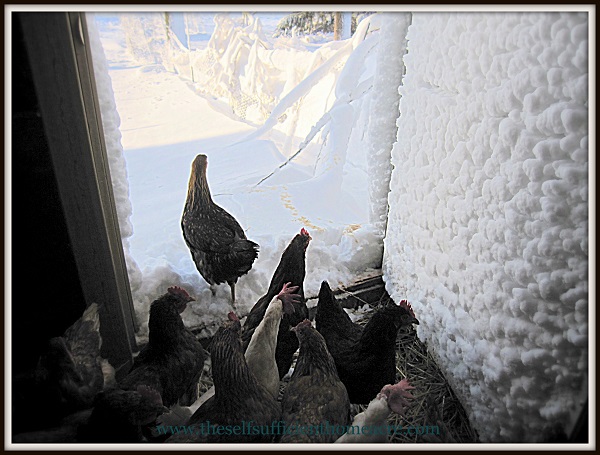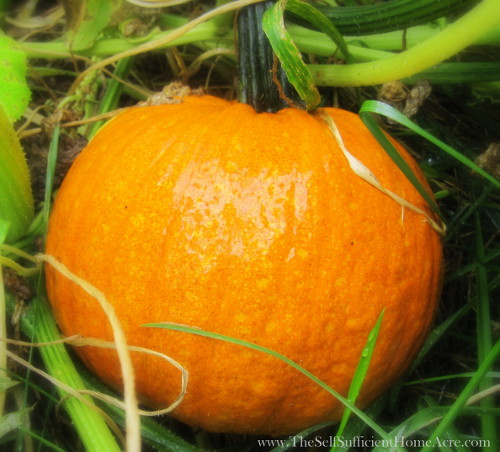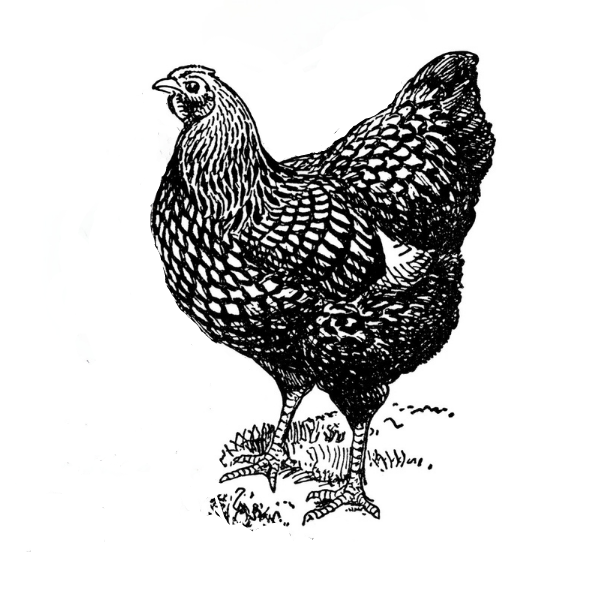Getting Your Chicken Coop Ready for Winter
Getting your chicken coop ready for winter is an important step for keeping happy, healthy hens. The colder your weather gets, the more critical this preparation will be. Without proper care and nutrients, your flock may suffer frostbite, lose too much body weight, suffer from dehydration, and/or stop laying eggs. They can also fall ill from ventilation problems or a drafty coop. Of course, you want to keep your chickens healthy and keep collecting some delicious eggs all winter. Believe me, I’ve faced a few problems with my chickens during cold weather and I’ve learned to spend a bit more time in the fall to prepare my coop and reduce issues.
This post contains affiliate links or advertisements as a means for this website to earn income. As an Amazon, LLC affiliate, I earn a commission on qualified purchases made through these links.
What Not To Do With Your Chickens in Winter
The first winter after I moved to my homestead, I saw an ad for chickens that needed a new home. The owners had about 20 chickens in an old tobacco barn with 2-inch gaps between the barn boards. Wind was whipping through those holes and snow was piling up on the floor of the barn. The chickens were huddled together as close as they could get and looked underweight and depressed. It was December and they were already suffering, so the rest of the winter would have been brutal for them… this is northern Illinois and sub-zero temperatures happen. That flock of chickens came home with me and went into quarantine right away. I knew I could do a better job of caring for them.
Growing up on a small farm doesn’t mean that I had all of the answers right away. That January I was the ‘helicopter chicken mom’… running out to the coop in the middle of the night to check on the chickens. I fussed over the freezing weather and set up a heat lamp in the coop… something I don’t do anymore. These days, I worry a lot less because I’ve had much more experience. I’ve learned how to prepare my chicken coop for winter, when the hens are stressed from the cold, and how to safely care for them in the bitter temperatures.
With a little bit of time and prep, you will have your chickens and their coop ready for cold weather. Even if it’s the middle of winter and you’re wondering how to take care of your flock, this info is great for you, too!

How to Get Your Chickens & Coop Ready for Winter
Here are the basics for getting your chicken coop and your flock ready for cold, snowy weather:
- Keep the coop draft-free but ventilated
- Insulate the coop to keep chickens warmer in winter and cooler in summer
- Heat the coop only in extreme cases, using safe methods
- Clean bedding often or use the deep litter method properly
- Provide wide, flat roosts to help prevent frostbite on their feet at night
- Keep their water dish from freezing
- Provide supplemental light if you wish to keep egg production up
- Gather eggs often to prevent freezing
- Increase the amount of feed given or increase their fatty treats
- Feed your chickens in the afternoon to increase their night-time body heat
- Prevent frostbite with petroleum jelly on their comb, wattles, and feet
Depending on your circumstances, some of these items may not be a huge deal. For example, if you live in a frost-free area, you don’t need to worry too much about gathering the eggs often, heating the coop, or keeping the water from freezing. It’s a good idea to plan ahead and think about how you would deal with freezing weather, just in case!
No matter where you live, identify backup sources of water and heat if the electricity is out. I use my wood stove in the house to heat water for my chickens, and in extreme cases, I can heat stones or bricks on the wood stove to wrap in old burlap and set them on our wide, flat roosts to help keep the hens warm at night.
Some of the items on this list might have you wondering, so let’s go into this list in deeper detail to answer any questions.
Preparing the Chickens and Their Coop to Keep Them Cozy
Keeping your chickens comfortable and healthy depends on having a safe, sturdy coop that is well-ventilated but free from drafts, and protects them from extreme temperatures. So how do you provide suitable winter conditions for your hens? Here’s the scoop on preparing your coop…
Ventilated vs Drafty
A well-ventilated coop has enough airflow to draw in fresh air and exhaust moist air that has ammonia from manure. If moisture is gathering on the ceiling and walls of the coop, it is not well-ventilated, and/or you have too many birds in the space. This causes excessive levels of ammonia which leads to respiratory illness and must be avoided.
On the other hand, a drafty coop has holes allowing wind to blow directly on your poultry while they roost. Drafts, rain, and snow can also lead to respiratory issues and reduced egg production.
Your chicken coop should have vents in the roof to allow warm moist air to escape. The walls should be insulated but the coop should not be so tight as to prevent air flow. If necessary, crack a window in a spot where it will not blow on the hens at night or open the coop up during the day and close it up again at night. This goes for turkeys, ducks, and other poultry, as well.
Should You Heat Your Coop?
This will depend greatly on just how cold the temperatures get and what breeds of chickens you have. Most healthy chickens can handle freezing temperatures in their coop if they are well-fed and their water isn’t frozen. However, some chicken breeds are cold-hardy and others are better adapted to hot regions. If your flock is susceptible to frostbite or if the temperatures drop into single digits, you may need to heat your coop.
I don’t recommend heat lamps due to the fire danger. If you wish to use them, be sure to keep them away from flammable materials (such as straw), follow all safety instructions, and make sure it is secured and can’t fall.
The safest type of heater for your chicken coop is a radiant heater made specifically for your chicken coop. (#ad) These are much safer than heat lamps and are installed on a wall, ideally in the general roosting area to prevent frostbite overnight.
One natural way to keep your chicken coop warmer in winter is to use a deep litter bedding method. To do this, add new bedding on top of the soiled bedding, creating layers that begin to decompose and create heat. This is only a good idea if you have excellent ventilation in the coop. Otherwise, you’re better off cleaning out the old bedding often and replacing it.
Best Roost for Freezing Temps
If the temperatures in your chicken coop drop below freezing in winter, there are some additional steps to take. Give your hens a wide, flat roosting space so that their feet are completely covered with their feathers at night. This helps to prevent frostbite on their feet. I like using a 2″ by 4″ length of lumber or stacked bales of straw for my hens to roost on. I actually have several different roosting spots made from different materials for them to choose from. You will need to clean these flat roosts more often!
Keeping Water From Freezing
If the water dish is frozen for too long (or too often) your hens can die of dehydration. You may need to check several times a day during really cold weather. There are a few ways that you can keep their water dish from freezing. If there is a very thin film of ice forming over their water, add some floating balls to help break up the ice. This only works to a certain point.
In colder weather, you may need to implement more effective methods. Here are some ideas:
- Add hot water several times a day to thaw their water
- Use a heater (#ad) made specifically for heating a chicken water container, or…
- Try a heated chicken waterer (#ad)
Self-Reliance Tip: If you have a wood stove, you can heat water for your hens on it or heat bricks and place one in an open dish of water to keep it from freezing. Each time the water starts to freeze, add a new brick and remove the old one. Caution: Don’t put wet bricks into the fire!
Keep Those Eggs Coming All Winter!
If your daylight hours get shorter in the winter, you may need to add supplemental light to keep your hens in production. Place a bright light near the roosting area and put it on a timer to come on early in the morning. Make sure that your hens will receive about 15 hours of light each day. Don’t leave the light on all night and don’t set it to go off in the evening after it gets dark out. This can cause some confusion and stress in the flock for a while. For more information, check out How to Get Eggs All Winter from Your Laying Hens.
Keep in mind that eggs will freeze and must be collected often to prevent this. Freezing causes whole eggs to crack, leaving them open to bacteria. Throw away cracked eggs or cook them thoroughly for your chickens or pets.
Give Your Hens Extra Calories in Cold Weather
When nighttime temps fall below freezing your hens will need up to 25% more feed to keep them healthy. The colder their winter surroundings, the more fat and calories they will need to stay warm overnight. Be sure to pick your hens up and check their body condition. Do they feel thinner than usual or do they feel a bit too plump?
Overweight hens may stop laying eggs so don’t overdo the treats! However, if your chickens are feeling a bit on the thin side you will need to try giving them additional food, or corn or sunflower seeds as an evening treat to help them stay warm overnight.
Protect Their Combs, Wattles, and Feet from Frostbite
Sometimes we just can’t keep the coop warm enough for our flock. Maybe your chicken coop is small and the hens need to spend part of the day outside in colder temps. If you have an enclosed outdoor area for your hens, try using tarps or plastic to protect them from the cold winds.
Give them some added protection with petroleum jelly or homemade petroleum-free jelly. Just put a small amount on your fingertips and gently rub over their combs, wattles, and feet. Be careful not to get any of this oily substance on the feathers because this will ruin their natural insulation… the opposite of what you want to do! This thin layer of oil helps to prevent frostbite on your hens’ extremities and may be reapplied every few days.
Watch for Signs of Stress and Frostbite
Check on your chickens often during very cold weather and watch for signs of stress or frostbite. Chickens that are constantly huddled together in a corner are probably too cold or there may be a draft blowing on them. Frostbite may start out as discolored areas on the extremities of the combs, wattles, or feet. This may begin as a pale color and then turn dark, even black. In extreme cases, they may lose sections of their comb, wattles, or feet. This is very painful and leaves their wounds open to infection.
Elderly, sickly, or thin chickens may need a more protected area or it may be best if they are culled from the flock in the fall to prevent suffering over winter.
Set up an emergency crate in a warm spot for chickens that have health issues and need to be quarantined. It’s also a good idea to keep electrolytes and Nutridrench (ads#) on hand in case a bird needs additional nutrients to get them through a stressful period.
People with small flocks may wish to set up an indoor area where they are protected from extreme weather. In areas with ice storms, heavy snows, or polar vortexes moving in, it’s a good idea to have a backup plan for your hens in case you can’t keep them warm enough in their coop. This is difficult to do if you have a larger flock or 20 or so chickens as I have… so I make absolutely sure that I have their coop ready for the worst that winter can throw at us!
Keep Your Chickens Safe and Healthy This Winter
With just a few steps, you can keep your flock happy this winter. Start preparing well before the temps drop and your hens get too cold. Prepare for emergencies and winter storms ahead of time. Make sure their coop has fresh air without any freezing drafts, heat only when necessary, keep a light on for egg production (and gather those eggs often), feed them well, and protect their extremities from the bitter cold… and they will love you for it!
How do you keep your chickens happy and warm in the winter? Leave a comment!





